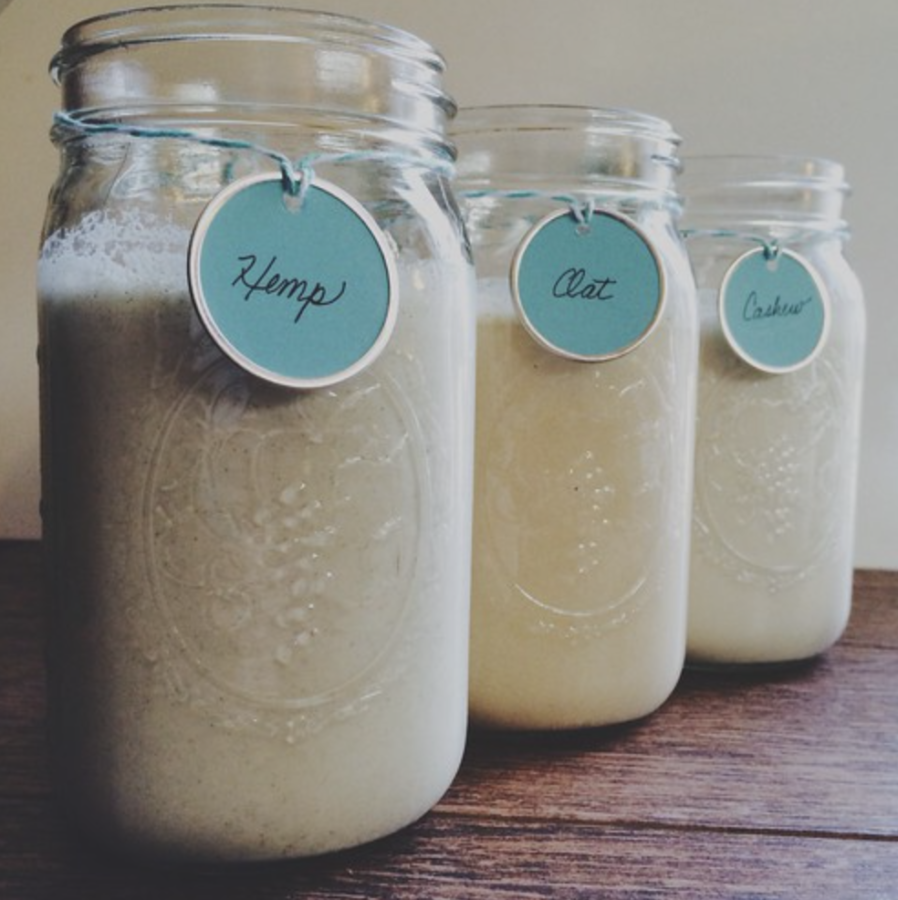Editorial: Crying over spilled milk
The ISD Editorial Board explains some of the recent division in the dairy industry over non-dairy products being labeled as “milk.”
September 15, 2021
Editor’s Note: Editorials are representative of the views of all Editorial Board members. One or two members will compile these views and write an editorial.
Non-dairy milk is becoming very popular. There are many kinds to choose from, such as oat, almond, soy, coconut, hemp and many more. The choices for those who choose to stay away from dairy milk are plentiful.
As we all know, dairy milk comes from a cow, and non-dairy milk comes from another alternative source, such as almonds or oats. This difference is crucial and actually stirring up some controversy in the dairy industry.
It seems that some dairy farmers are upset that the term milk is being used for drinks that are, in fact, not milk. Non-dairy kinds of milk are becoming more and more popular; their availability is climbing in the dairy aisle of your local grocery store. According to Mintel, non-dairy kinds of milk have grown in popularity since 2012, with a rise in sales of 60 percent between 2012 and 2017. This is some pretty substantial growth in only five years, growth that is unsurprisingly becoming an issue for the dairy industry.
Some in the dairy industry are taking steps to prevent non-dairy beverages like almond milk from being called milk. In North Carolina and Maryland, action has been taken to work towards removing the word milk from non-dairy beverage packaging. Dairy farmers in these states feel it is not fair that non-dairy beverage companies are making money off of the word milk. The action that has been taken in both North Carolina and Maryland will only go into effect when other states follow suit and have similar legislation.
The upset over the usage of the word milk is quite interesting. If anything, one would think the dairy industry would be more upset over the amount of resources that the production of non-dairy milk takes. Almond, oat and soy milk all require more water for production than standard milk does. From an ecological standpoint, this is ostensibly more concerning than the “misleading” packaging of these products, as our planet is fighting some serious climate change.
Yet, instead of being upset over this, the dairy industry has taken up arms against the word milk. For this group of dairy farmers (we’re well aware that a large number of farmers are concerned about the impact of farming on our planet), their competitors using the word milk to describe their beverage that comes from something other than cows is just an outrageous feat.
Assuming the consumers would become confused and purchase a non-dairy instead of dairy option seems pretty illogical. Why don’t these dairy farmers trust their customers? Consumers have the ability to read and can acknowledge the label in front of non-dairy options, such as oat, almond or soy. If they cannot make that distinction, then the mistake seems to fall on their own shoulders and not the producers at all.
Perhaps non-dairy beverages are making some money off of the word milk — but it seems unlikely. Consumers choose these drinks because of the lack of dairy, which logically means they would not then turn to dairy due to a packaging change.
Milk is something people can enjoy, whether it comes from a cow or another alternative source. Fighting over the word seems a bit silly. As stated earlier, the competition is rising, but the industries should trust their consumers. Consumers have the responsibility to make a choice best suited for them and their lifestyle.

















